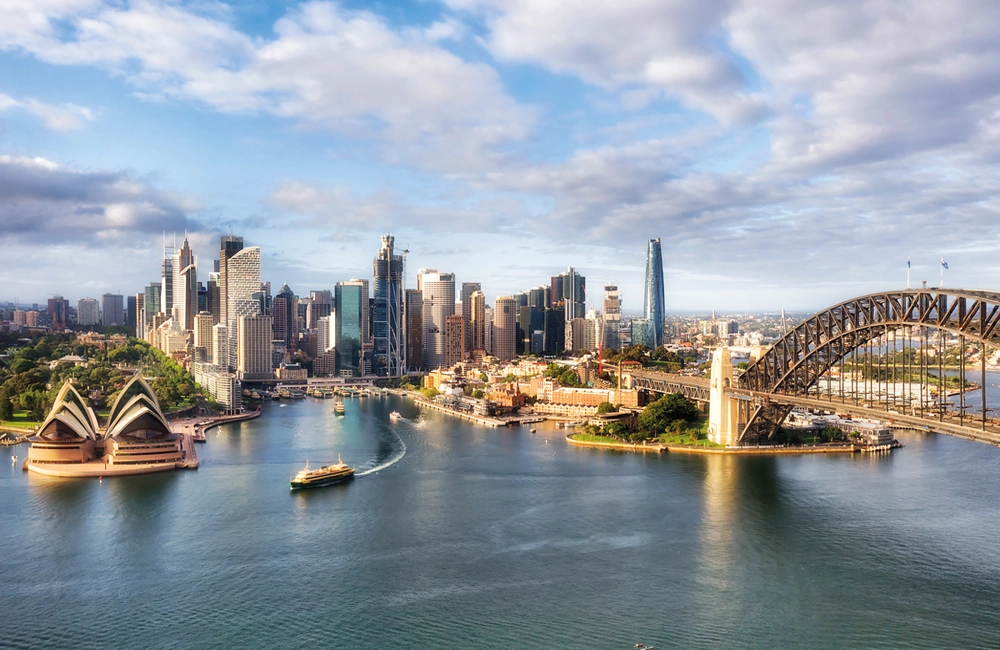After pulling out from the deal, Musk and Twitter have been lawyering up with Twitter’s chairman Bret Taylor on Saturday suggesting that Twitter will sue Musk.
Musk says his deal was called off because Twitter wouldn’t give him the information about spam accounts on its platform. But Taylor reiterated that the board will maximise the potential to complete the takeover transaction for the price agreed upon under the terms agreed.
In response to Musk’s decision to thumb his nose at the takeover, the share price of Twitter fell 3.2%, and slipped 7.8% in pre-market trading on Monday. On Wednesday, Twitter did the justice that Taylor had previously sounded the alarm for. The social media group has sued in a Delaware court to force Musk to close the deal for $US 54.20 a share. Twitter stock slid further over the week, closing down 1.4% on Thursday.
Zip it long distance Sezzle-ship
Struggling BNPL outfit Zip (ASX: ZIP) pulled the pin on the Sezzle deal on Tuesday this week. More nobly than tech billionaire Elon Musk, Zip co-founders Larry Diamond and Peter Gray want to hand Sezzle $16.3 million to walk away.
Shares of Zip popped when the market opened, rising 12% in the first 45 minutes of trading on Tuesday. Analysts at UBS who were reported by The Australian Financial Review said the cancelling of the merger was a modest positive and suggests that the BNPL may be getting more serious about addressing its cash burn and rethinking its approach to growth.”
This follows the company announcing last week it would be shutting down its Zip Trade and Zip Trade plus businesses as well as its budget planning service Pocketbook.
Australia unemployment falls to a 48-year low
The Australian Bureau of Statistics (ABS) released figures on Thursday revealing that the unemployment rate had dipped 0.4 percentage points to 3.5% in June the lowest official rate since 1974. RISING living costs and higher interest rates are adding pressure on jobseekers to hurry into the job market, which experts say is the real reason the rate is falling.
In the past two years, that unemployment rate has been tumbling since hitting 7.5% in July 2020. The tally released Thursday means 88,400 more people worked last month than in May.
Inflation in the US shows no sign of its relentless march slowing
Inflation in the US took a surprise turn for the worse in June, rising 1.3 percent to a 41-year high of 9.1 per cent. The print came in 0.3% above the median 8.8% forecast.
The fruit and vegetable index was up 0.7% in June, and the energy index advanced by 7.5% for the month as well. These days, the intensifying pain of the cost of living has convinced traders to make even larger bets on the walks it can take from the Federal Reserve: There’s a one percentage point move in the works, they say, for the July meeting.
If the Fed were to raise rates by another 100 bps at its upcoming meeting at the end of this month to combat rising inflation, the Fed funds rate would be at 2.58%. This is just 1.07% from the December 3.65% that the futures markets are projecting.
Bon voyage from EML Chief Executive
EML chief executive Tom Cregan stepped down on Monday, having spend 10 years as CEO of the company. In a statement to the stock exchange this week, the payment provider said the board recognised Cregan “has been a key contributor to the EML growth story for more than a decade”.
The share price of the company, which announced his exit on late Sunday, crashed at Monday’s open, finishing the day down 19 percent. Shares clawed back some of that loss in trading on Thursday, but still finished the week off 20.3%.
In an announcement today the company says non-executive Director, Emma Shand has been appointed Managing Director and CEO with immediate effect.
Late-night lattes in the war over coffee industry's soul
On Monday, Hungry Jack’s unveiled they had spent $20 million to build ‘Jack’s Café’. While many are skeptical about the move, the new McCafé challenger will be launched in 410 stores nationwide.
And Chris Green, the Chief Executive, who has previously worked at fast food giant McDonald’s, that the market is there for drive-through barista cafes. The Jack’s Café brand has been introduced over the last two years during the pandemic, with 5,000 baristas being trained and ‘structural changes’ implemented.
The next time you want to grab that late night coffee, you’ll have more places to choose from.
Iron ore miners just can’t catch a break
There were also early share price falls for Rio Tinto, BHP and Fortescue Metals Group on Friday, with iron ore prices falling overnight. Losses were compounded through Friday’s session, in which Fortescue Metals Group led the losses by falling 6.2% to close, with Rio Tinto and BHP falling 2.9% and 3.5% respectively.
The price of iron ore dropped below $US100 per tonne on Friday morning due to fresh Chinese lockdowns and headwinds in the property market. China will spend 7.2 trillion yuan (AUS $1.6 trillion) on infrastructure to revive its property market after lockdowns held back domestic economic growth, Bloomberg has reported.
But concerns about mounting debt for Chinese developers have caused investors to become less euphoric about hoping on the fiscal stimulus train.
ASX falls: Market wrap
The ASX has recovered some of its early losses but has still ended the day lower after the price of iron ore dropped to a 10-month low on concerns over demand from China.
The benchmark S&P/ASX200 index fell 113 points, or 1.7 per cent, in the first 45 minutes of trading on Friday, before trading more or less steadily to close down 45 points, or 0.68 per cent, at 6,605.6.
The broader All Ordinaries finished down 50.6 points, or 0.74 per cent, at 6,798. The ASX200 fell 1.08 per cent for the week, with materials again the worst performing sector.
The mining sector tumbled 3.2 per cent on Friday to close the week down 6.1 per cent, the sixth straight week of losses. Midday Friday saw Chinese economic data released which showed the world’s second largest economy grew by just 0.4% in the second quarter, well short of expectations for a 1.0% rise, and this only did to drag commodity prices lower.
“China’s adding to angst I think locally, because on the one hand they’re talking up a big stimulus program to get the economy working, and then on the other hand, they’re still trying to pursue this zero-COVID policy,” Betashares chief economist David Bassanese told AAP.
“So it’s safe to say for the Chinese that the view is very much mixed and murky at this point.”
Rio Tinto ended 2.9 percent lower at $93.27 after the miner posted a hit to its second-quarter earnings on skilled labour shortages and inflation.
"There may be a silver lining to this quarter in the form of costs not moving higher but there isn't a lot to get too excited about as this was only possible due to the very weak Australian dollar," RBC Capital Markets analyst Tyler Broda said in a note.
Among the miners, BHP and Fortescue also hit 12 and 11-month lows, falling 3.5 per cent to $36.10 and 6.2 per cent to $16.33 respectively.
Gold miners Newcrest, Northern Star and Evolution were each down by more than two and half per cent at multi-year lows as the precious metal price hovered around 1-1/2-year lows of $US1,700 an ounce.
Several of the big banks fell largely lower after US banking behemoths JPMorgan and Morgan Stanley reported a larger-than-expected second quarter decline in profits as a pandemic-era listing, mergers and acquisition boom came to a halt.
Pendal Group fell 7.8 percent to a nine-year low of $3.76 after the fund manager said funds under management fell to $111 billion in the June quarter, down from $124.9 billion.
Blood products giant CSL rose 1.0 per cent to an eight-month record peak of $299.25, an 11th straight session of gains.
“CSL’s probably getting a benefit as well from a lower Aussie dollar – and the moves now are all towards defensive, it’s considered more of a defensive stock, so that would be supportive,” Mr Bassanese said.
Among technology stocks Wisetech Global gained 3.4 percent to $44.13 after lifting its full-year revenue forecast.
The international logistics company said that it anticipates an adjusted profit of $310 million to $320 million, compared with its prior forecast in February of $275 million to $295 million.

























